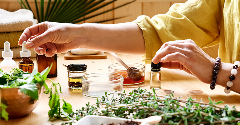News
Cranberries can reduce UTIs
22 Jun 2016Leading experts on infectious disease and urinary tract infections (UTIs) gathered recently in London to discuss the findings from a study that is said to have conclusively shown that cranberries can reduce symptomatic UTIs.

Leading experts on infectious disease and urinary tract infections (UTIs) gathered recently in London to discuss the alarming state of antibiotic resistance and present findings from a study that is said to have conclusively shown that cranberries can be a nutritional approach to reducing symptomatic UTIs, and as a result, may be a useful strategy to decrease worldwide use of antibiotics.
According to the study, funded by Ocean Spray and recently published by the American Journal of Clinical Nutrition, drinking an 8-ounce (240 ml) glass of cranberry juice a day reduces symptomatic UTIs by nearly 40% in women with recurrent UTIs – reducing the burden of UTIs and reducing the antibiotic use associated with treating recurrent UTIs.“Currently the primary approach to reducing symptomatic events of UTI is the use of chronic antibiotics for suppression, an approach associated with side effects and development of antibiotic resistance. This study shows that consuming one 8-ounce (240 ml) glass of cranberry juice a day reduces the number of times women suffer from repeat episodes of symptomatic UTI and avoids chronic suppressive antibiotics,” said Dr. Kalpana Gupta, infectious disease specialist and Professor of Medicine at Boston University’s School of Medicine.An author on the study and panellist at the session, Gupta believes that cranberries can help to reduce the worldwide use of antibiotics and significantly improve the quality of life for women who suffer from recurrent UTI symptoms.The 24-week study of 373 women, conducted by researchers at Boston University, Biofortis Innovation Services (a division of Merieux Nutrisciences) and 18 clinical sites throughout the US and France, is said to be the largest clinical trial of its kind examining the effects of cranberry juice consumption on UTIs. This trial adds to more than 50 years of cranberry research and allegedly supports the cranberry’s ability to support urinary tract health and reduce symptomatic UTIs among chronic UTI sufferers.Researchers set out to find whether recurrent (or repeat) UTI sufferers could be protected from repeat infections by drinking cranberry juice. Participants were all healthy women, with an average age of 40, who had experienced at least two UTIs within the past year. During the study, participants were randomly chosen to drink a daily dose of eight ounces (240 ml) of either cranberry juice or a “placebo” beverage without cranberries.The rate of UTIs decreased significantly among the cranberry drinkers, with just 39 diagnoses during the six-month study compared with 67 in the placebo group.Compared to some other studies, this trial is claimed to have had greater statistical power to detect differences than others due to its larger sample, use of incidence density to account for the tendency of clinical UTIs to cluster in time within an individual, a high average level of compliance (98%), and a comparatively large percentage of subjects in each group completing the treatment period (86%).Women with symptomatic UTIs experience all the discomforts of a UTI, such as a strong, persistent urge to urinate or a burning sensation when urinating, but may or may not test positive for a bacterial infection upon a consult with a physician. In many instances, women are treated with antibiotics for symptom relief whether bacteria is found or not. According to Gupta, the key to avoiding the situation altogether may very well lay with the cranberry.“The key to cranberry’s benefit is consuming a glass daily to help avoid the infection altogether,” said Gupta. “Most people wait to drink cranberry juice until they have a UTI, but once the symptoms start they’ll likely need a course of antibiotics.”UTIs are among the most common bacterial infections in women worldwide. Up to 60% of all women are said to suffer a UTI in their lifetime, and up to 25% experience a recurrence within six months. Some 150 million UTIs occur annually worldwide, according to the American Urological Association, resulting in $6 billion in annual health care costs.Antibiotics are usually the first line of treatment for urinary tract infections, and women who have frequent UTIs may be prescribed low-dose antibiotics. Unfortunately, chronic overuse of these drugs has increased antibiotic resistance at an alarming rate globally. So much in fact, that the World Health Organization (WHO) cites a 50% resistance rate to one of the most widely used antibiotics to treat UTIs.Cranberries are said to contain a unique combination of compounds including Type-A PACs (or proanthocyanidins) that prevent bacteria from sticking and causing infection. In addition to PACs, new studies have revealed a new class of compounds, xyloglucan oligosaccharides, which have similar anti-bacterial properties against E. coli as PACs. These unique compounds can be found in a variety of products, including cranberry juice cocktail, 100% cranberry juice, light cranberry juice, dried cranberries and cranberry extract; however most of the research surrounding cranberries and UTIs has been conducted using juice.Related news

Our most-read articles of 2025
23 Dec 2025
From trade tariffs to heavy metals in protein, we look back at some of the industry’s highlights of 2025 and round up our most-read stories of the year.
Read more
Bigging up bean-based products and consumption in Britain
19 Dec 2025
Non-profit organisation the Food Foundation has launched a campaign, “Bang in Some Beans”, designed to increase UK consumers’ legume consumption.
Read more
Ingredient transparency key to success in European natural health market
12 Dec 2025
Europe’s $40.7 billion supplements market is growing fast, fuelled by demand for products that support healthy ageing, mental wellbeing, and preventive health, say experts.
Read more
Whole Foods Market forecasts fibre frenzy for 2026
11 Dec 2025
Whole Foods Market has released its top 2026 trends, predicting that a fibre frenzy will take place next year as health-conscious consumers seek out nutritious, filling options.
Read more
Sorghum emerges as better-for-you hero ingredient
9 Dec 2025
With the launch of Novak Djokovic’s sorghum-based brand, the grain’s popularity in the better-for-you snacking sphere is on the rise, thanks to its nutritional and sensory properties.
Read more
Innovation promise in 'maturing' plant-based dairy alternatives market
8 Dec 2025
Plant-based dairy is a maturing market that still faces significant hurdles around taste, functionality, nutrition, and price, but industry is innovating fast, according to experts speaking at Fi Europe.
Read more
Celebrating the winners of the Fi Europe Innovation Awards 2025
3 Dec 2025
Food industry stakeholders celebrated as the winners of the Fi Europe Innovation Awards were announced at a ceremony in Paris.
Read more
Apply now for the Vitafoods Europe Innovation Awards 2026!
28 Nov 2025
Entries for the Vitafoods Europe Innovation Awards 2026 are now open! Game-changing companies have until 27 February to submit their entry across eight categories for the chance to win big.
Read more
Concerns swirl around cinnamon’s compliance with EU law
25 Nov 2025
Cinnamon may be a top functional ingredient, but it needs stronger protocols to ensure it meets EU food safety laws and quality standards, say researchers.
Read more
Bone broth: From old-fashioned to en vogue
24 Nov 2025
OXO’s entry into bone broth has turned the spotlight on this small but high-performance category – and there is still scope for growth, especially in the area of GLP-1 support.
Read more